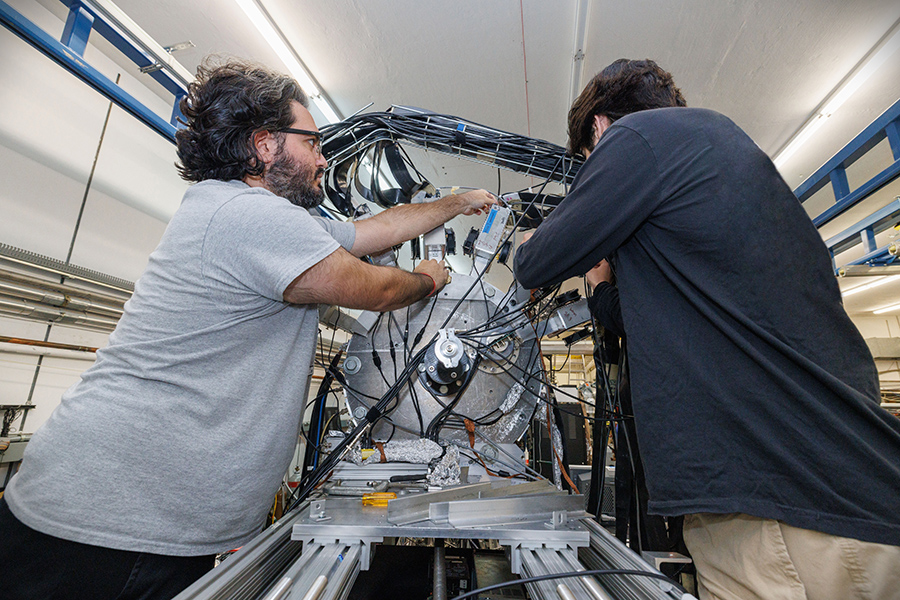FSU physicists will study nuclear reactions of stars with support from National Science Foundation

Trillions of miles away from our planet, nuclear reactions inside exploding stars produce most of the naturally occurring elements in the universe.
Here on Earth, Florida State University physicists at the John D. Fox Superconducting Accelerator Laboratory will replicate those reactions to better understand how they work and produce elements. Their work to investigate the universe’s building blocks is funded by a $9 million grant from the National Science Foundation (NSF).
The most distant star explosions are investigated by astronomers through multiple “messengers,” things like visible light, high-energy particles and gravitational waves. Various areas of physics are required to understand these observations from a distance, and nuclear physics plays a central role. The FSU researchers can recreate the conditions during star explosions in the laboratory — atom by atom — to better understand astronomical observations and how such explosions create the chemical elements found in nature.
“When we look out into the universe, we see different stars and star explosions with different properties,” said Ingo Wiedenhoever, a professor in the Department of Physics and a co-principal investigator on the project. “Understanding those star explosions requires us to understand the ingredients of those stars. Some of these explosions tell us about space and time itself, how the universe expands and how that expansion accelerates. We are trying to put our understanding of those star explosions on more solid footing and calibrate them to a level where we have quantitative predictions that we can use in astronomical observations.”
The project includes two major research goals:
- Studying nuclear reactions within stars: By reproducing the nuclear reactions that take place in stellar explosions, FSU physicists can measure the rates at which reactions occur in exploding stars. That information will give researchers a better understanding of the amounts of elements in the universe and contribute to a deeper understanding of star explosions.
- Investigating unstable nuclei: The research team will also measure the behavior of so-called exotic nuclei, which are atoms of any element with the standard number of protons and electrons but different numbers of neutrons, either unusually large or small. They are highly unstable and don’t occur naturally on Earth. Measuring the properties of exotic nuclei can give physicists clues as to the fundamental nature of how nuclei in general are held together.
The post FSU physicists will study nuclear reactions of stars with support from National Science Foundation appeared first on Florida State University News.
Latest FSU News
- New Campaign Urges FSU Students to Keep Their Heads UpThe post New Campaign Urges FSU Students to Keep Their Heads Up appeared first on Florida State University News.
- Behind the Scenes: ACC Inventure PrizeThe post Behind the Scenes: ACC Inventure Prize appeared first on Florida State University News.
- Recent graduate of Florida State University English earns prestigious creative writing fellowshipA two-time Florida State University English alumnus and recent graduate has been awarded a highly competitive early-career creative writing award […] The post Recent graduate of Florida State University English earns prestigious creative writing fellowship appeared first on Florida State University News.
- Florida State University experts available for interviews on Men’s Health MonthBy Olivia Sanchez Celebrated in June, Men’s Health Month encourages fathers to exemplify better living and seek preventative care. The […] The post Florida State University experts available for interviews on Men’s Health Month appeared first on Florida State University News.
- FSU IT Takes Spotlight with National AwardThe post FSU IT Takes Spotlight with National Award appeared first on Florida State University News.
- FSU Board of Trustees approves $2.97 billion operating budgetThe Florida State University Board of Trustees on Thursday approved a $2.97 billion operating budget for the 2025-2026 fiscal year, […] The post FSU Board of Trustees approves $2.97 billion operating budget appeared first on Florida State University News.







